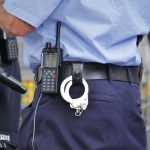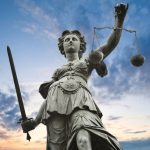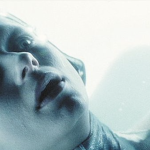Always Independent: An Interview with Murrawarri Republic Chair Fred Hooper

This weekend in Brisbane, the Referendum Council is holding the last of the Dialogues: a series of meetings with First Nations peoples to discuss the issue of recognising the nation’s Indigenous people within the Australian constitution.
The findings from the meetings will be reported at the First Nations Convention at Uluru in late May.
However, for many Aboriginal and Torres Strait Islander people constitutional recognition is a token gesture. And what needs to be established is a framework of treaties between the government and each of the continent’s Indigenous nations.
But over recent years, there are some First Peoples nations that have gone a step further and declared independence.
Never ceded
On March 30 2013, the Murrawarri Republic made a formal declaration of independence. The Murrawarri people pointed out that they’ve been living on their land – situated on the border of NSW and Queensland – for tens of thousands of years, and sovereignty had never been ceded.
The People’s Council of the Murrawarri Republic sent their declaration to the Queen of England requesting documents proving Crown title within 21 days. But no response was received and this was interpreted as proof that indeed the republic was an independent state.
According to the council, “there were three legally recognised doctrines that governed the taking over or acquiring of new land under 18th century British and international law.” These were a declaration of war, the negotiation of a treaty or the principle of terra nullius: the concept that the land had no owners.
The British didn’t declare war on the Murrawarri Nation, and the Murrawarri people never sign a treaty. Great Britain actually claimed the land was terra nullius, however, the local Murrawarri people were actually living there at the time.
And as the council further outlines, the High Court of Australia abolished the legal fiction of terra nullius in its 1992 Mabo versus Queensland (No 2) ruling. The court recognised native title – or that Indigenous people had a prior claim to the land – in Australia for the first time.
Sovereign Nations
The Murrawarri Republic encompasses an area of around 82,000 square kilometres and has a population of about 3,500 people. It was the first Indigenous nation on the continent to declare its independence, but others have followed.
The Euahlayi Nation declared their independence in August 2013. The Wiradjuri Central West Republic did so in January 2014. And the Yidindji Tribal Nation renounced legal ties with Australia that same year. All the nations have independent governments, and some have established police forces.
Fred Hooper is the chair of the People’s Council of the Murrawarri Republic. During his time, the Murrawarri elder served six years in the Australian Navy as a submariner and spent nine years working in the public service.
Sydney Criminal Lawyers® spoke with Fred Hooper about the process the republic went through to declare its independence, their guiding principles, and what he thinks about constitutional recognition.
The Murrawarri Republic declared independence from Australia in March 2013. Can you outline the process you undertook in order to do this, and the reasoning behind it?
Firstly, we didn’t declare our independence from Australia. We declared that we were always independent from Australia. We declared our continued independence and statehood. Because we’ve never ceded our sovereignty or allodial title to the Crown of Great Britain.
The process that we went through. First of all, it came out of the fortieth anniversary of the Aboriginal Tent Embassy, where sovereignty was the main focus of the anniversary.
We then consulted other members of the Murrawarri people. We researched forms of independence and forms of republics as well.
From a meeting of Aboriginal people in Wollongong, we then went away and researched it. And found that a republic was the best for us, because we were never a kingdom. We didn’t have Kings and Queens. And we didn’t claim our seat to the throne through God.
We decided to go with a republic.
So the process was that we researched declarations of independence. How other countries declared their independence. And we decided to go with something similar to Israel’s declaration of independence through the United Nations in the creation of the state of Israel.
We wrote the declaration. And then it was a matter of getting people to sign it. We hit the road and went to sporting events and got Murrawarri people to actually sign the declaration.
From there we wrote to Queen Elizabeth II notifying her – because she is the head of state of the country – of our intentions and our declaration.
The High Court in the 1992 Mabo case recognised native title in Australia for the first time. In response to that judgement the federal government passed the Native Title Act 1993.
Can I ask why the people of the Murrawarri nation didn’t instead decide to make a native title claim under the provisions of this Act?
Well we found that the Act didn’t work. We found that the Act was established for white Australia and all the benefits went to white Australia. All the benefits, except for one right, the right to negotiate.
Then that right to negotiate within the Native Title Act, if you don’t negotiate with mining companies within six months, and you don’t come to an agreement, then the Federal Court or the judicial system of Australia can overturn the native title.
They can force you into arbitration or they can rule in terms of development. So it’s unjust and unfair legislation.
But also, we found that in Mabo there were a number of things that the High Court said. One was that the Crown did not gain absolute beneficial ownership to the land. The Crown did not gain allodial title to the land.
They did not gain the original title off the Murrawarri to our traditional land. So therefore, we felt that our ownership of that land has continued, and that’s supported by Mabo in that statement by the judges.
Mabo did two things. It overturned the fiction of terra nullius. And it created a new principle of occupation that was outside the international law and outside of international norms, because it created a principle of peaceful settlement. Nowhere else in the world is there a principle of peaceful settlement.
We believe that we have a much stronger case. The research that was done in terms of Murrawarri people found that we’re actually not citizens of Australia, because citizenship comes through the Citizenship and Naturalisation Act of 1948.
That Act actually screens First Nations people in this country from becoming citizens of Australia. So we felt that we were alien from this nation, and that our nation was here prior to 1788.
And there was one other very interesting thing that we looked at as well. There was this old farmer in Western Australia, who declared himself independent from Australia. He pays no taxes. He declared himself a principality.
So we thought, well, if somebody from Europe can come out here and declare their independence from Australia and consider themselves a micro-nation and get acceptance, then the First Peoples should have some claim to the land as well.
We felt that Mabo gave us that opportunity, because the High Court actually said that the Crown did not gain absolute beneficial ownership to the land.
The Murrawarri Republic has its own constitution drafted in April 2014, and its own government: the People’s Council of the Murrawarri Republic.
Can you tell us about the guiding principles of the republic?
We have the constitution. It’s a draft constitution. The declaration set up the principle of the People’s Council, which looks at different types of legislation, emblems, seals, symbols and negotiations.
Our principles are that we don’t exclude anybody from our nation. The constitution does not exclude non-Murrawarri people from living within our nation. And it does not exclude them from being a part of our nation, benefiting from it, living on our nation, or owning land.
We’re looking at the governance of that land, and how the Murrawarri can govern that land for all of its citizens, not only just the Murrawarri people that live there, and the Murrawarri people that don’t live on country as well.
Some of the guiding principles are based on sharing our country. The other thing we don’t want to do is kick people off our country. It’s about benefits for all our citizens, both ancestral and non-ancestral citizens.
It’s been four years since the Murrawarri Republic declared independence. How would you say life has changed over that period for the local people?
Life continues. This is a political process. It’s a fight that we’re taking on politically.
We’ve had no benefits from government. But one of the other things that happened is that some of the development that’s happening, they actually talk to us as well. They just don’t leave us alone. They talk to us.
Also our People’s Council is looking at how we can look at projects that can benefit the whole of the nation. We’re looking at renewable energies in some of our communities. We’re looking at how we can get those renewable energies into those areas. So those type of benefits.
We’re a little bit further down the track. We’re more recognised now as a nation.
I also sit on an organisation that recognises 22 Sovereign First Nations on what they call the Murray-Darling Basin.
And we’ve managed to get the traditional owners and our nations recognised in Commonwealth legislation, through the Murray-Darling Basin Plan. It’s recognised through statute law that sits under the Water Act.
From that we’re looking at doing other things with other Aboriginal nations, like the Euahlayi Nation.
And one of the big things that came out of a meeting in Canberra last year was that overall there’s 48 Sovereign First Nations in the Murray-Darling Basin. Those 48 nations are now looking at how and what are the processes of us negotiating treaties with each other.
Under international law, a nation can be recognised as treating with other nations if it has trade. So through those treaty negotiations, and those negotiations with those other nations, we’re looking at how we can look at trading amongst ourselves.
How we can look at overseas trade with other First Nations, say in America, Canada and Maori in New Zealand.
These some of the things that are coming out of what we did in 2013.
The Murrawarri Republic was the first Indigenous nation on this continent to declare independence, and there are a few others now.
Do you think there will be more Indigenous nations following suit in the future?
Yes. I think it’s people’s understanding, because they’ve been so colonised over the last 200-odd years.
It’s their understanding. And it’s showing those nations that we think we have a case here legally through international law.
We always say Australia is still a colony of Great Britain. And Australia’s constitution even says that, or be it a self-governing colony. There’s still a string there to Great Britain.
What we’re looking at is recognition from Great Britain that we have never ceded our sovereignty. That we have never ceded our lands.
Hopefully now, a lot more nations will come on board. People are ringing and asking about how we did it.
And we have a package that we send out to people that are looking at declaring as well. So we are assisting other nations around the country. And every now and then, another will pop up and declare their independence.
A few years back, you were in the process of contacting the United Nations Special Committee on Decolonisation and requesting to be placed on the non-self-governing territories list.
Can I ask how that process is going? And could you explain the benefits of being placed on the list?
We have written to the Decolonisation Committee. To date, we haven’t got a response and we’re planning to write to them again to request to be put on the decolonisation list.
By being placed on the list, there’s an international obligation for Great Britain as the colonising country of the continent of Australia to decolonise under United Nations Resolution 1541.
If you are placed on that list, you are in the process of decolonisation. And there are other small countries that are on the decolonisation list. There’s one in the Pacific that only has 50 citizens.
We’re looking at firstly, trying to get onto the list. And secondly, negotiating with Great Britain, through the Queen’s ministers in Australia, in regards, to decolonising and also, self-governing of our territory.
This will benefit the people that are living in our territory, instead a lot of the benefits of the funds and the revenue that are generated within our country, leaving our country.
At the time the British arrived on this continent there were over 500 different nations already existing here. There’s never been any formal treaties set up between the Commonwealth of Australia and the various First Peoples nations.
Instead of looking towards formal treaties, the federal government is pushing for recognising Aboriginal and Torres Strait Islander peoples in the Australian constitution.
What are your thoughts on constitutional recognition?
I attended the Dubbo Dialogue on constitutional recognition. And I was elected to go to Uluru in May for the Dialogue.
Our position is we need to talk sovereignty and treaty.
One of the other reasons we declared our independence was that John Howard made a statement when he was prime minister and they were talking treaty with Aboriginal people. He came out and said in public that we cannot treaty with our own citizens.
Being recognised in the constitution, we feel, will wipe out our identity. There will no longer be separate Indigenous nations within the continent of Australia. We will all be labelled Australian Aborigines. We won’t have identity back to country.
A lot of the services that are helping people that are recognised in the constitution will dry up.
But also, through the treaty process there is a real opportunity for us to negotiate tangible outcomes, in terms of revenue and looking at governing our own nations as well. Making decisions about that and providing health services. Which is a bottom up approach, and not a top down approach which is happening now.
For us, we can’t have real constitutional recognition without a treaty document to back it up. And a treaty document is a legal document registered with the United Nations.
The constitution forgot us when it was written and I don’t think being recognised in the constitution is going to change anything for Aboriginal and Torres Strait Islander people around the country.
And lastly, Fred, it’s Anzac Day next week. On that day in 2015, you were stopped from marching alongside the Submarine Association in the Anzac parade in Canberra, because you were holding a Murrawarri Republic flag.
You were also stopped from laying a wreath because you’d been leading the Frontier Wars march, which honours those Indigenous people who lost their lives fighting the British as they took over the continent.
This First Peoples procession has followed the Anzac Day march for the past six years.
Could you tell us whether the Frontier Wars march will be taking place in Canberra this Anzac Day? And what it means to the Indigenous people of this continent that the government still won’t officially acknowledge that these wars took place?
Yes it will be happening this year. I’m hoping to get down to it.
For us, it’s the recognition that this country was not peacefully settled. They are saying this country was peacefully settled, but it wasn’t.
We fought the British. We fought the colonisers. And there were great warriors fighting all the way that aren’t being recognised in this country. They recognise conflicts overseas, but what about conflicts on our own soil?
For a lot of Aboriginal people that’s the issue. We know that these things happened. We know that people were massacred. We know that the British declared martial law.
If you look at America and you look at the Battle of Little Bighorn, a lot of that has been recognised by the Americans.
One of the things the War Memorial said was that they don’t recognise wars before Federation. But there’s one war they recognise and that they celebrate pre-Federation which is the Boer War. And there were Aboriginal people that were taken to that war as well.
So I think that’s not a very good excuse for not recognising that there were wars and conflicts in our own country.
Fred thanks very much for speaking with us today. And best of luck going into the future with further establishing the Murrawarri Republic as independent nation.
No worries. Thank you.
Receive all of our articles weekly
Author

Paul Gregoire






